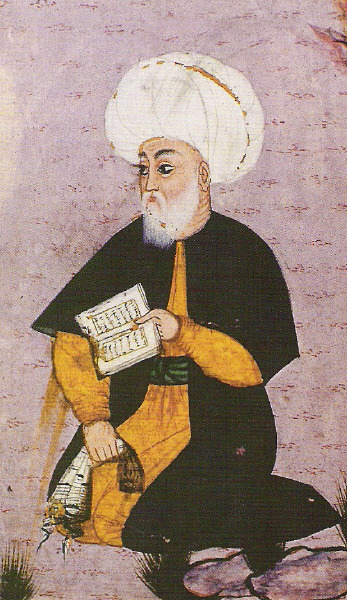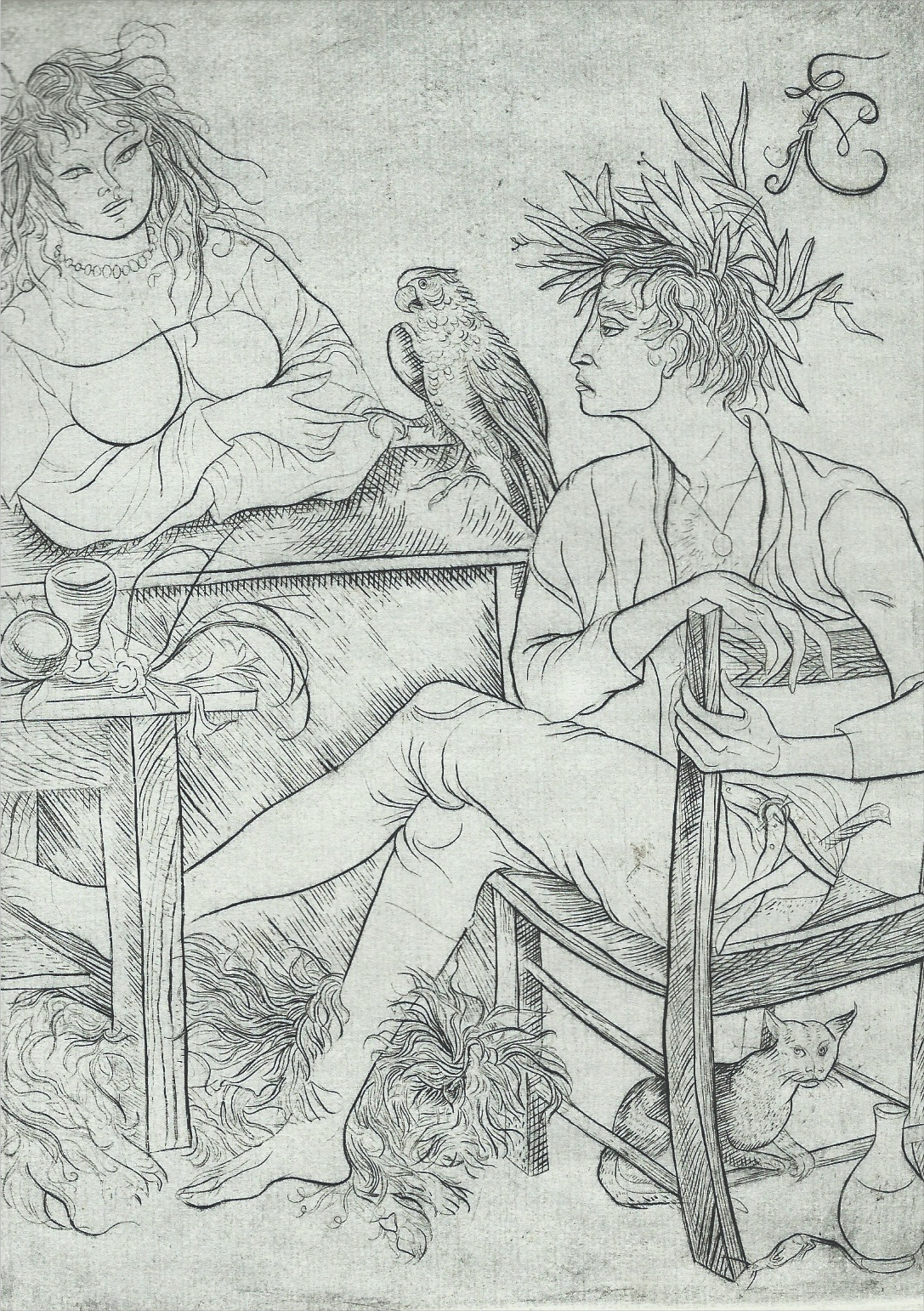|
1483 In Poetry
Nationality words link to articles with information on the nation's poetry or literature (for instance, Irish or France). Events * Robert Henryson's cycle ''The Morall Fabillis'' probably composed in the 1480s; earliest datable manuscripts of John Barbour's Scottish chivalric epic, ''Brus'', also in this decade. Works published 1480: 1481: * Luigi Pulci, ''Morgante'', a 23-canto version (see also 1473, 1482 and the final ''Morgante Maggiore'' 1483); Italy 1482: * Luigi Pulci, ''Morgante'', a 23-canto version (see also 1473, 1481 and the final, 28-canto ''Morgante Maggiore'' 1483); Italy 1483: * Geoffrey Chaucer, English, all posthumously published: ** ''The House of Fame'', edited by William Caxton, an unfinished dream-poem; Caxton wrote the 12-line conclusionCox, Michael, editor, ''The Concise Oxford Chronology of English Literature'', Oxford University Press, 2004, ** ''Troilus and Criseyde'', published anonymously, publication year uncertain * John Gower, ''Confessio Aman ... [...More Info...] [...Related Items...] OR: [Wikipedia] [Google] [Baidu] |
Irish Poetry
Irish poetry is poetry written by poets from Ireland. It is mainly written in Irish language, Irish and English, though some is in Scottish Gaelic literature, Scottish Gaelic and some in Hiberno-Latin. The complex interplay between the two main traditions, and between both of them and other poetries in English and Scottish Gaelic literature, Scottish Gaelic, has produced a body of work that is both rich in variety and difficult to categorise. The earliest surviving poems in Irish date back to the 6th century, while the first known poems in English from Ireland date to the 14th century. Although there has always been some cross-fertilization between the two language traditions, an English-language poetry that had absorbed themes and models from Irish did not finally emerge until the 19th century. This culminated in the work of the poets of the Irish Literary Revival in the late 19th and early 20th century. Towards the last quarter of the 20th century, modern Irish poetry tended ... [...More Info...] [...Related Items...] OR: [Wikipedia] [Google] [Baidu] |
John Lydgate
John Lydgate of Bury (c. 1370 – c. 1451) was an English monk and poet, born in Lidgate, near Haverhill, Suffolk, England. Lydgate's poetic output is prodigious, amounting, at a conservative count, to about 145,000 lines. He explored and established every major Chaucerian genre, except such as were manifestly unsuited to his profession, like the ''fabliau''. In the ''Troy Book'' (30,117 lines), an amplified translation of the Trojan history of the thirteenth-century Latin writer Guido delle Colonne, commissioned by Prince Henry (later Henry V), he moved deliberately beyond Chaucer's '' Knight's Tale'' and his ''Troilus'', to provide a full-scale epic. The '' Siege of Thebes'' (4716 lines) is a shorter excursion in the same field of chivalric epic. Chaucer's ''The Monk's Tale'', a brief catalog of the vicissitudes of Fortune, gives a hint of what is to come in Lydgate's massive ''Fall of Princes'' (36,365 lines), which is also derived, though not directly, from Boccaccio's ' ... [...More Info...] [...Related Items...] OR: [Wikipedia] [Google] [Baidu] |
Pir Sultan Abdal
Pir Sultan Abdal (born Haydar) is an important religious figure in Alevism, who is thought to be of Turkmen origin and to have been born in the village of Banaz in present-day Sivas Province, Turkey. He is considered legendary among his followers. His life is reconstructed from folkloric sources, especially religious poems which are believed to have been composed by himself and transmitted by ashiks. However, his attribution is considered problematic. During the Ottoman–Persian Wars, he supported religious heterodoxy and the political subversion of Anatolia which got him hanged. See also * Alevism * Kurdish Alevism Kurdish Alevism () refers to the unique rituals, sacred place practices, mythological discourses and socio-religious organizations among Kurds who adhere to Alevism. Moreover, Kurdish Alevis consider their hereditary sacred lineages as semi-deifi ... References Executed people from the Ottoman Empire People executed by the Ottoman Empire by han ... [...More Info...] [...Related Items...] OR: [Wikipedia] [Google] [Baidu] |
Hutten
Hutten is an originally German family name. * Christoph Franz von Hutten (1673–1729), Bishop of Würzburg * Lars Hutten (born 1990), Dutch soccer player * Philipp von Hutten (1505–1546), conquistador * Ulrich von Hutten Ulrich von Hutten (21 April 1488 – 29 August 1523) was a German knight, scholar, poet and satirist, who later became a follower of Martin Luther and a Protestant reformer. By 1519, he was an outspoken critic of the Roman Catholic Church. Hu ... (1488–1523), German humanist See also * Hütten (other) {{disambiguation, surname ... [...More Info...] [...Related Items...] OR: [Wikipedia] [Google] [Baidu] |
Fuzûlî
Mahammad bin Suleyman ( Classical Azerbaijani: ), better known by his pen name Fuzuli ( az-Arab, فضولی ; ; * ota, محمد بن سلیمان فضولی ; * fa, محمد بن سلیمان فضولی . – 1556), was a 16th century poet, writer and thinker, who wrote in his native Azerbaijani, as well as Arabic and Persian languages. Considered one of the greatest contributors to the divan tradition of Azerbaijani literature, Fuzuli in fact wrote his collected poems (divan) in all three languages. He is also regarded as one of the greatest Ottoman lyrical poets with knowledge of both the Ottoman and Chagatai Turkic literary traditions, as well as mathematics and astronomy. Life Fuzûlî is generally believed to have been born around 1480 in what is now Iraq, when the area was under Ak Koyunlu Turkmen rule; he was probably born in either Karbalā’ or an-Najaf. He was an Azerbaijani descended from the Turkic Oghuz Bayat tribe, who were scattered through ... [...More Info...] [...Related Items...] OR: [Wikipedia] [Google] [Baidu] |
1892 In Poetry
Nationality words link to articles with information on the nation's poetry or literature (for instance, Irish or France). Events * William Butler Yeats founds the National Literary Society in Dublin. Works published Australia United Kingdom * A. C. Benson, ''Le Cahier Jaune''Cox, Michael, editor, ''The Concise Oxford Chronology of English Literature'', Oxford University Press, 2004, * Wilfred Seawen Blunt, ''Esther, Love Lyrics, and Natalia's'' * Austin Dobson, ''The Ballad of Beau Brocade, and Other Poems of the XVIIIth Century'' * Rudyard Kipling, '' Barrack-Room Ballads, and Other Verses'', including "Gunga Din," "Danny Deever", "Fuzzy-Wuzzy", "Mandalay" and "Gentlemen-Rankers", first book publication, Methuen (see also ''Barrack-Room Balads, second series'' in 1896) * Richard Le Gallienne, ''English Poems'' * George Meredith: ** ''Modern Love: Aa Reprint'' (see ''Modern Love'', 1862) ** ''Poems'' * Arthur Symons, ''Silhouettes'' * Alfred Tennyson: ** ''The Silent Voices ... [...More Info...] [...Related Items...] OR: [Wikipedia] [Google] [Baidu] |
François Villon
François Villon (Modern French: , ; – after 1463) is the best known French poet of the Late Middle Ages. He was involved in criminal behavior and had multiple encounters with law enforcement authorities. Villon wrote about some of these experiences in his poems. Biography Birth Villon was born in Paris in 1431. One source gives the date as .Charpier 1958, "1er avril 1431 (vieux style) ou 19 avril 1432 (nouveau style) : naissance à Paris, de ''François de Montcorbier'', alias ''des Loges'', qui deviendra François Villon pril 1, 1431 (old style) or April 19, 1432 (new style): birth in Paris of ''François de Montcorbier'', alias ''des Loges'', who would become François Villon Early life Villon's real name may have been François de Montcorbier or François des Loges: both of these names appear in official documents drawn up in Villon's lifetime. In his own work, however, Villon is the only name the poet used, and he mentions it frequently in his work. His t ... [...More Info...] [...Related Items...] OR: [Wikipedia] [Google] [Baidu] |
Japanese Poetry
Japanese poetry is poetry typical of Japan, or written, spoken, or chanted in the Japanese language, which includes Old Japanese, Early Middle Japanese, Late Middle Japanese, and Modern Japanese, as well as poetry in Japan which was written in the Chinese language or '' ryūka'' from the Okinawa Islands: it is possible to make a more accurate distinction between Japanese poetry written in Japan or by Japanese people in other languages versus that written in the Japanese language by speaking of Japanese-language poetry. Much of the literary record of Japanese poetry begins when Japanese poets encountered Chinese poetry during the Tang dynasty (although the Chinese classic anthology of poetry, ''Shijing'', was well known by the literati of Japan by the 6th century). Under the influence of the Chinese poets of this era Japanese began to compose poetry in Chinese '' kanshi''); and, as part of this tradition, poetry in Japan tended to be intimately associated with pictorial painting, p ... [...More Info...] [...Related Items...] OR: [Wikipedia] [Google] [Baidu] |
The Actes And Deidis Of The Illustre And Vallyeant Campioun Schir William Wallace
''The Actes and Deidis of the Illustre and Vallyeant Campioun Schir William Wallace'' (Modern ), also known as ''The Wallace'', is a long "romantic biographical" poem by the fifteenth-century Scottish ''makar'' of the name Blind Harry, probably at some time in the decade before 1488. As the title suggests, it commemorates and eulogises the life and actions of the Scottish freedom fighter William Wallace who lived a century and a half earlier. The poem is historically inaccurate, and mentions several events that never happened. For several hundred years following its publication, ''The Wallace'' was the second most popular book in Scotland after the Bible. The earliest extant text is a copy made by John Ramsay, 1st Lord Bothwell in 1488, but that copy has no title page and last few pages are missing, with no mention of Blind Harry as its author. The first mention of Blind Harry as the work's author was made by John Mair in his 1521 work ''Historia Majoris Britanniae, tam Angliae ... [...More Info...] [...Related Items...] OR: [Wikipedia] [Google] [Baidu] |
Blind Harry
Blind Harry ( 1440 – 1492), also known as Harry, Hary or Henry the Minstrel, is renowned as the author of ''The Actes and Deidis of the Illustre and Vallyeant Campioun Schir William Wallace'', more commonly known as '' The Wallace''. This was a lengthy poem recounting the life of William Wallace, the Scottish independence leader, written around 1477, 172 years after Wallace's death. Biography Little is known about Blind Harry's life. One source is the Lord High Treasurer's accounts of 1473–1492, which recorded payments to him for performances at the court of James IV. Blind Harry was given gifts of money by the King at New Year, as were other minor courtiers, but a payment on 2 January 1492 seems to relate to the singing of a ballad accompanied by two Gaelic harpers, " Ersche clareschaw", mentioned in adjacent entries. This is the last mention of Harry in the accounts. He is mentioned by William Dunbar on line 69 of his ''Lament for the Makeris'' early in the 16th century ... [...More Info...] [...Related Items...] OR: [Wikipedia] [Google] [Baidu] |






